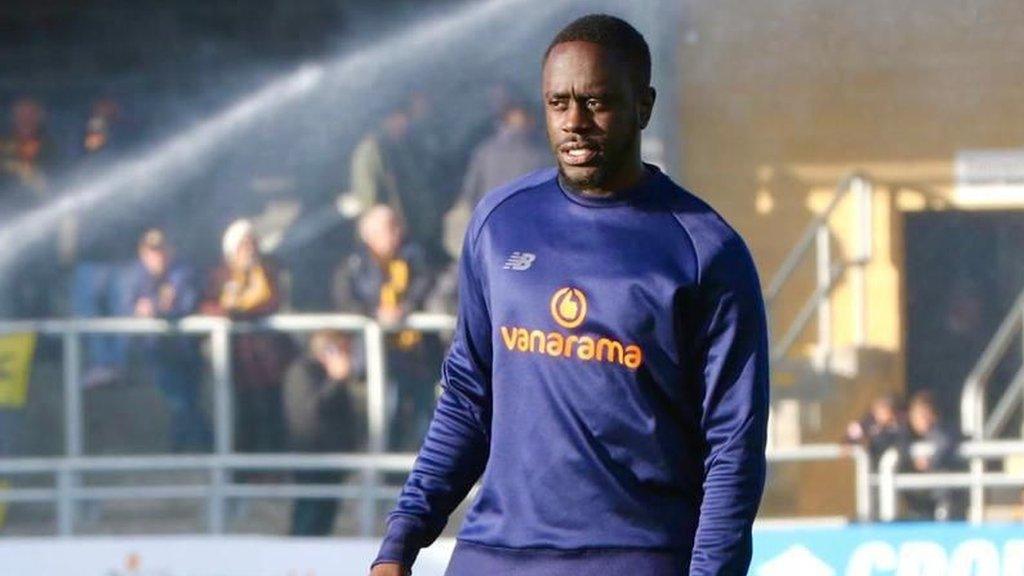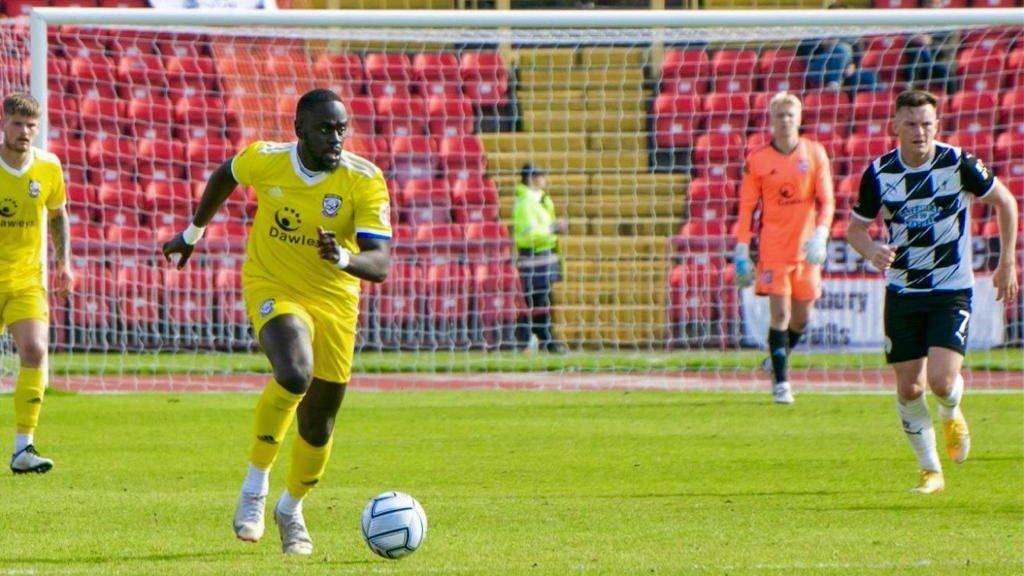Pa Sulay Njie: injury-hit career left me depressed
- Published

Njie's most recent club was Hereford FC
Gambia international and former Stoke City player Pa Sulay Njie has talked about how an injury-ravaged career and failure to secure a new club have led to depression.
The 30 year-old, who came through the Coventry City academy alongside England internationals James Maddison and Callum Wilson, has been without a club since July last year.
Whereas his fellow graduates have gone on to thriving careers, a succession injury problems have seen Njie bouncing from club to club in the English non-league, though he did also have a spell in Turkey with Hatayspor.
"When you are injured you are not a happy person," Njie told BBC Africa Sport.
"You get mood swings, you are frustrated, and that's what I have been going through. I have been depressed and it takes a lot of mental strength to overcome that."
'Like prison'

Despite his early promise, the majority of Njie's career has been spent in the English non-league
Njie left the Coventry junior squads in 2010 and signed for nearby Nuneaton Town. He then had a brief spell with Stoke City though did not get matches for the first team.
After then joining Kettering, Boston and Shrewsbury through the 2010s, he ended up in his home country of The Gambia playing for Real de Banjul.
He had spent some time on the fringes of his national team squad and in 2019 he got picked up by Hatayspor - the club that recently signed Christian Atsu, who remains missing following the earthquake in Turkey.
However, he was left without a club again when once again injuries meant he was not perform to a high standard in Turkey.
"It's a very a difficult place to be because growing up all you want want to do is play and enjoy football," he said.
"When you are injured you can't really play, even though you want to be out there.
"It's almost like you are in a prison, because you want to be out but you can't be out."
Njie said he is now currently training with Oxford United in an effort to once more find fitness and get a new opportunity.
"When the transfer window comes it's always difficult, because your hope and your dream is to play in a team that you are wanted," he explained.
"Opportunities are limited. Not every club is looking for free agents. They all have targets, and its always a difficult time for players in that period, so mentally its very tough."
Despite his age, Njie said he would not give up on his career, and that he believes he still has a few more years of football in him.
"I have a lot of belief and faith in myself, and that's what keep me going," he said.
"I have seen players come out with worse injuries and they ended up coming out on top, and they are back playing and scoring goals in whatever leagues they are playing. Injuries are just part and parcel of the sport."
In 2016 former Queens Park Rangers manager Chris Ramsey talked about how he had experienced depression through the long-term injuries he had sustained in his own playing career.
"I had seven knee operations and three back operations and I was probably depressed for years," he told the Guardian.
"People don't realise with long‑term injuries you go into depression - no matter how mild it is."
And mental health in football expert and ex-pro Kevin George told Sky Sports in August last year, external that "emotionally, players can house trauma from an injury they have not dealt with."
"Their whole life becomes an anchor for the trauma," he said.
"Their schedule changes from a team timetable to an individual timetable. With no time to adjust, physically their environment creates a feeling of loneliness.
Their interactions with others change, as teammates, friends and the press refer to them as their injury. The very thing that separates them from others is their trauma, which creates further isolation.
This is trauma with plenty of time to think whilst feeling alone, distorting reality negatively by a great amount. It is the birthplace for depression."